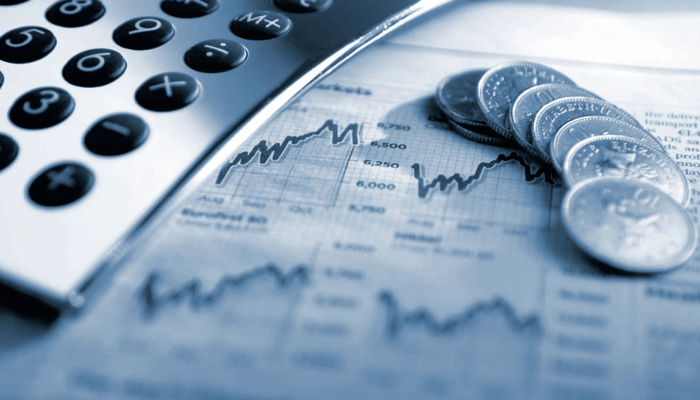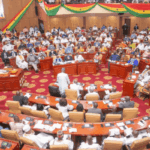Nigeria, once synonymous with instability, is quietly rewriting its economic story. Reforms over 2023-2025, including the removal of fuel subsidies, exchange rate unification and aggressive tax expansion, have transformed Africa's most populous economy into an investable proposition for long-term capital.
While the country's tax-to-gross domestic product (GDP) ratio rose to 13.5 per cent in 2024, foreign reserves stagnated at just above $42 billion, with the balance of payments recording a $6.8 billion surplus – the first in almost a decade. Fitch Ratings revised Nigeria's outlook to positive, citing sound financial management.
With a reinvested GDP of N372.8 trillion ($244 billion), Nigeria's economy now appears more diversified, with its rapidly growing digital, creative and services sectors capturing the growth. Investors are again eyeing the market of more than 200 million consumers, whose average age is under 19, and continental trade access under the African Continental Free Trade Area (AfCFTA).
Also read: We are leading Africa’s new frontier in global investment immigration – Nechi
Below are six sectors that are attracting capital and providing further opportunities
Sector: Agriculture and Agro-Processing
Main number: According to the Food and Agriculture Organization (FAO) and the African Development Bank, Nigeria accounts for about 23 percent of West Africa's arable land, making it the region's largest agricultural base.
Yet, much of this land remains under-utilized due to weak infrastructure, limited mechanization and climate-related risks.
Who is investing: Olam, Dangote Industries, Flour Mills of Nigeria, AFEX, Norfund
Investment Case: Agriculture is once again the backbone of Nigeria's diversification drive. Demand for food and processed goods is increasing with population growth, while improvements in land ownership and commodity exchanges are unlocking scale.
From cocoa and cashew to rice and cassava, investors are moving beyond farming to value-added processing. According to the National Bureau of Statistics (NBS_), Nigeria's agro-processing output is set to grow by nine percent in 2024. AFEX and Olam Agri are financing smart-warehouse systems that can reduce post-harvest losses by 20 percent.
Key Opportunities:
Agricultural Technology: Drone farming, precision irrigation and digital supply chains are improving yields and efficiency.
Export Processing Zone (EPZ): The Lekki and Ogun SEZs offer tax holidays, duty-free imports and streamlined customs.
Input Manufacturing: Fertilizer and seed plants are expanding as part of national policies to reduce imports.
Visible states:

Source: IAPrecision; Lekki Free Zone Development Company; Nepza; NSIA; National Agricultural Seed Council; AfDB (2023-2024); world bank
risk: Insecurity, logistics costs and climate-related shocks in parts of the North.
Also read: Nigerian leaders urged to prioritize infrastructure, human capital investments
Sector: technology, digital infrastructure
Main number: $1.8 billion investment expected in data centers by 2030 (Frost & Sullivan)
Who is investing: Microsoft, MainOne (Equinix), Huawei Cloud, Airtel Data Center, Rack Center
Investment Case: Nigeria's digital economy is growing rapidly. With over 100 million smartphone users and the highest fintech penetration in Africa, demand for secure data hosting, AI computing and fintech infrastructure is growing.
The government's Data Protection Act (2024) and National Broadband Plan are catalysing private investment. New data-center parks in Lagos and Abuja are being designed to have low-latency connectivity and renewable-powered cooling systems.
Key Opportunities:
Data Center and Cloud Services: Anchor tenants of banks and e-commerce players ensure predictable cash flows.
Fintech and Payments: Mobile-money adoption above 50 percent provides scale for financial inclusion startups.
AI and Cyber Security Services: The emerging need for localized cloud compliance.
Visible states:

risk: Policy uncertainty around power reliability, FX costs on imported equipment and data localisation.
Sector: Renewable Energy
Main number: 22 million homes remain off-grid (RMI, 2025)
Who is investing: ENGIE Energy Access, Daystar Power, Husk Power, RenSource Energy, IFC
Investment Case: Nigeria's power deficit of more than 30 GW represents a $20 billion investment opportunity. Solar energy adoption increases by 17 per cent in 2025 as diesel prices exceed N1,100/litre. Hybrid solar storage systems are now standard for factories, estates and data centers.
The energy transition plan targets net-zero emissions by 2060, with off-grid renewable access a key pillar. Investors are comforted by sovereign-backed guarantees under the World Bank's NEP (Nigeria Electrification Project).
Key Opportunities:
Mini Grid and Solar Park: 500+ projects planned in 25 states.
Battery Manufacturing: Local assembly plants are emerging in Ogun and Anambra.
Green Hydrogen: An early-stage pilot led by the Nigerian National Petroleum Company (NNPC) and the International Finance Corporation (IFC) is exploring ammonia export potential.
states worth visiting

risk: Delays in grid integration, enforcement gaps in power-purchase agreements. Currency volatility increases import costs for panels and batteries, while delayed tariff enforcement remains a concern in rural electrification.
Also read: Nigerian leaders urged to prioritize infrastructure, human capital investments
Sector: Infrastructure, Construction
Main number: The African Development Bank (AfDB) has put the infrastructure gap in Nigeria at $3 trillion.
Who is investing: China Civil Engineering Construction Corporation, Julius Berger Nigeria, Infracredit, Africa Finance Corporation
Investment Case: Infrastructure is Nigeria's ultimate multiplier. Roads, ports and housing increase competitiveness and open up industrialization. Public-private partnerships are gaining momentum under the Nigerian Infrastructure Corp (InfraCorp), which targets projects worth $38 billion by 2030.
Key Opportunities:
Transport Corridors: Modernization of the Lagos-Calabar Coastal Highway, Ibadan-Kano Rail and Airport.
affordable housing: The 17-million-unit deficit offers consistent returns through the rent-to-own model.
Smart City Projects: Lagos and Abuja are exploring digital utilities, waste management and e-governance.
Visible states:
Lagos is advancing its infrastructure with major projects such as the Forth Mainland Bridge and the Lekki Deep Sea Port. Ogun's Gateway Agro-Industrial Corridor is promoting housing and road development. Abia is developing the Aba Smart City with international support, while Kaduna devotes the largest share of its capital budget to infrastructure in Nigeria.
risk: Land-ownership disputes, bureaucratic delays, and inflationary input costs.
Sector: Oil, Gas and Petrochemicals
Main number: Dangote Petroleum Refinery has a refining capacity of 650,000 barrels/day
Who is investing: Dangote Industries, Chevron, TotalEnergies, NLNG, Waltersmith Petroman
Investment Case: The post-subsidy era has transformed Nigeria from an importer of fuel to an emerging regional exporter of refined products. The $20 billion Dangote complex is already refining gasoline for export to West Africa and other markets.
Natural gas is the new frontier: Nigeria has Africa's largest reserves (200 TCF) and is expanding domestic pipelines under the Gas Decade Plan. Modular refineries and petrochemical plants are attracting midstream investors looking for dollar-indexed returns without upstream volatility.
Key Opportunities:
Gas Logistics and Storage: Floating LNG and Compressed Gas Terminals.
Petrochemicals: Supply of feedstock to plastics, paints and fertilizers.
Decarbonization plays: Gas-to-Power and Carbon Capture Pilot.
states worth visiting
Lagos is accelerating the development of the energy sector with the Dangote Refinery and the Lekki Free Zone. River is expanding LNG production through NLNG Train 7, while Delta is adding midstream capacity through the Waltersmith modular refinery. Additionally, Akwa Ibom's Ibom Deep Seaport is set to support LNG exports.
risk: Contract enforcement, vandalism and funding barriers for smaller players.
Sector: Manufacturing, Industrial Park
Main number: Potential contribution of 18 percent to GDP by 2040 (PwC Nigeria)
Who is investing: Unilever, BUA Group, Lafarge Africa, Nestlé, Stellantis
Investment Case: Nigeria's manufacturing renaissance is linked to the AfCFTA and Special Economic Zones (SEZs). Companies are localizing production to hedge against FX risks and take advantage of regional markets. The Lekki Free Zone now hosts over 50 multinational companies with logistics integration in the deep sea port.
Automotive assembly, fast-moving consumer goods and pharmaceuticals lead the charge. Fiscal incentives, including a 10-year tax holiday and duty-free equipment imports, are strengthening margins.
Key Opportunities:
Automobile assemblies and components for continental export.
Pharmaceuticals and Chemicals: Substitution of $3 billion in annual imports.
Textile and agro-allied manufacturing in the Kano and Aba clusters.
Visible states:
Lagos is witnessing strong industrial growth with the expansion of the Lekki Industrial Zone and the Stellantis Car Assembly Project. Ogun's Sagamu corridor is an important part of Nigeria's manufacturing output. Kano is reviving its textile sector under the AfCFTA, creating thousands of jobs, while Abia's Aba leather and garment cluster is boosting exports.
risk: Foreign exchange volatility, lack of infrastructure, and competition from cheap Asian imports.
investor lens
Nigeria's opportunity sits at the intersection of reform credibility, demographic scale and industrial ambition. Its marginal premium remains, but so does its yield.
For investors, the differentiating factor is discipline more than optimism. Structured capital, milestone-based funding and risk-sharing with local partners now define better money entering the market.
As one project financier told BusinessDay:
“You can't eliminate Nigerian risk, but you manage it. When you get it right, the returns are massively continental.”
Nigeria is transitioning from a reform story to a results story. For capital with patience and precision, this is Africa's most investable region, not because it is easy, but because it is changing.











